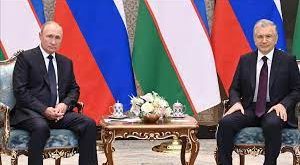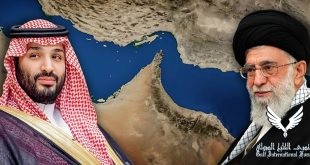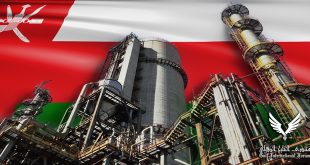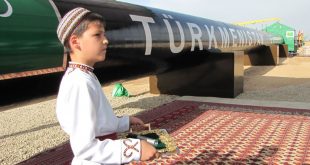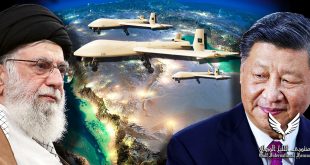Introduction In a breakthrough deal, brokered by China, Saudi Arabia and Iran have agreed on the resumption of diplomatic relations and the mutual opening of embassies, a move that could change the balance of power in the Middle East and restore stability in the region. Under the agreement reached, the …
Read More »The Future of Russian-Uzbekistani Energy Relations
In February 2023, Uzbekistani President Shavkat Mirziyoyev announced an energy package valued at over $1 billion to ease the country’s heating and electricity needs (Tashkent Times, February 8). In this, while Russia is considered a key player in providing Tashkent with much-needed oil and natural gas products, Uzbekistan also hopes …
Read More »Azerbaijan’s Energy Transition Strides and Efforts to Minimize Carbon Footprint
Key Points Azerbaijan’s energy transition is driven by several factors, including the country’s growing economy, increasing energy demand, and concerns about climate change.Azerbaijan has plentiful fossil fuel supplies used for export, but as there is a global move toward obtaining zero net greenhouse gas emissions, the country will need to …
Read More »Iran-Saudi Agreement: In Search of Stable Oil Exports and New Relations
As a “neutral” power seeking to distance itself from the Middle East’s various geopolitical rivalries, China has supported reconciliation and peace to stabilize its access to the region’s resources. The relationship between Iran and Saudi Arabia has been fraught with tension for decades, with each side accusing the other of interference in …
Read More »Geopolitics Grants Omani LNG a Lifeline
The Russian invasion of Ukraine has given Oman’s natural gas industry, long handicapped by relatively modest reserves and high extraction costs, a new lease on life. The global energy crisis caused by Russia’s invasion of Ukraine one year ago has underlined the centrality of LNG to Europe’s energy security. Since …
Read More »Saudi Aramco’s U.S. Investments: A Win-Win Template for Bilateral Energy Engagement
As Saudi Arabia has grappled with its Vision 2030 reform plan and its transition away from fossil fuels, one international partner of choice in the energy sector has emerged: the United States In recent years, many countries in the Middle East region have concluded that their continued economic dependence on …
Read More »The Dynamics Shaping Global Energy Markets in 2023
After a year of unprecedented turmoil, global energy prices could return to a ‘new normal’ in 2023—or they could be further disrupted by ongoing or new political and economic crises. The full-scale Russian invasion of Ukraine in February 2022 led to major reverberations in energy markets around the world. In an attempt …
Read More »Iran Looks to Turkmenistan for Energy Needs
With its massive oil and natural gas reserves, Turkmenistan’s economy is heavily dependent on foreign exchange earnings from the export and sale of these resources. Given this, the country’s economic stability is tied to Ashgabat’s foreign policy and cooperation with its neighbors, including those territories located in the path of …
Read More »Iran and China Loom Large in Saudi Arabia’s “Game of Drones”
Driven by its desire for economic gain and the threat posed by Iran, Saudi Arabia has relied heavily on China to develop its domestic drone program—much to Washington’s chagrin. In recent years, many Middle Eastern states have devoted growing sums to research in cutting-edge defense technology—particularly drone warfare, a crucial …
Read More »Iran and the Shanghai Cooperation Organization
While representing a major symbolic step, finalizing Iranian membership in the Shanghai Pact is not a panacea for the country’s current political, economic, and security challenges. Before the outbreak of recent mass protests, Iranian leaders were working to ameliorate their country’s international isolation through official membership in the Shanghai Cooperation …
Read More »

